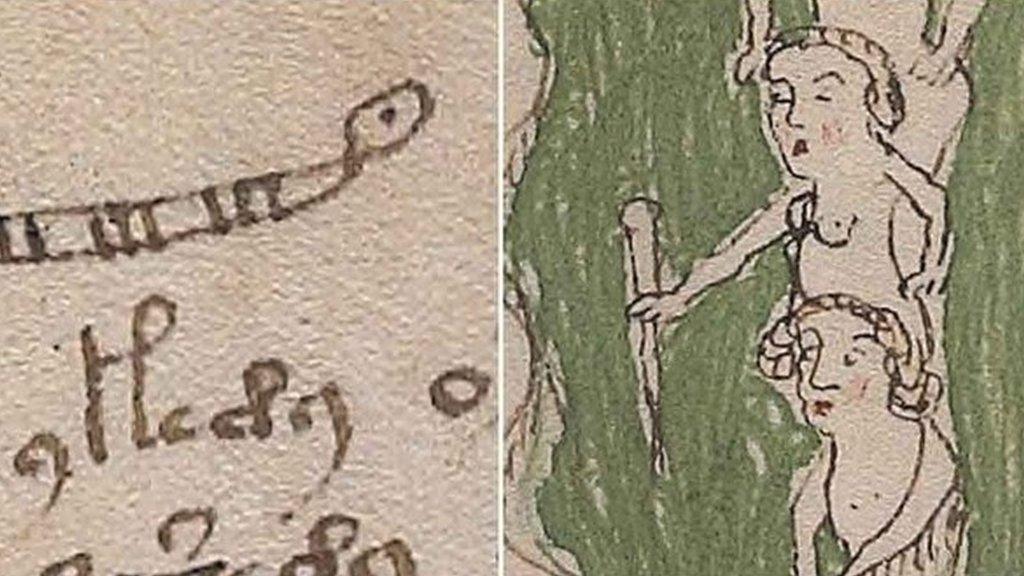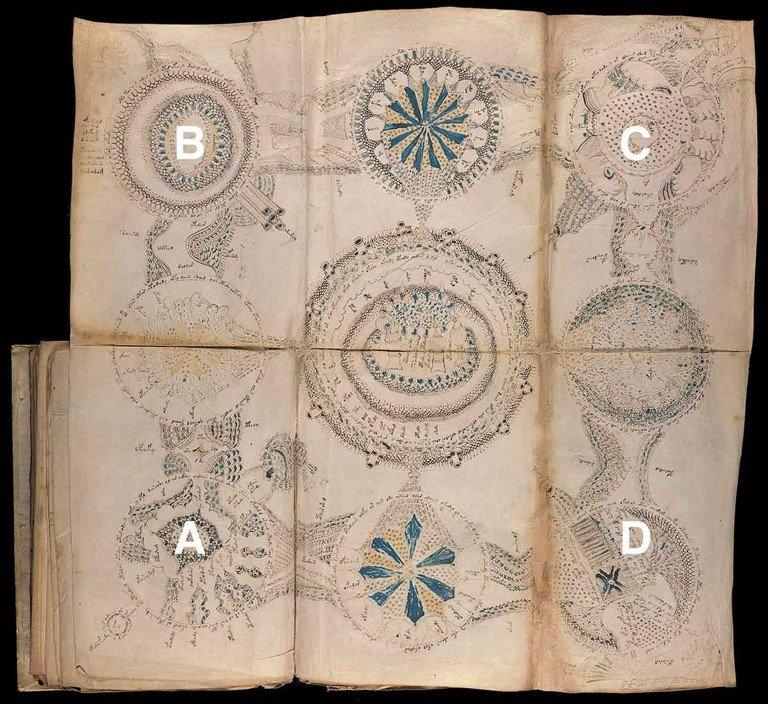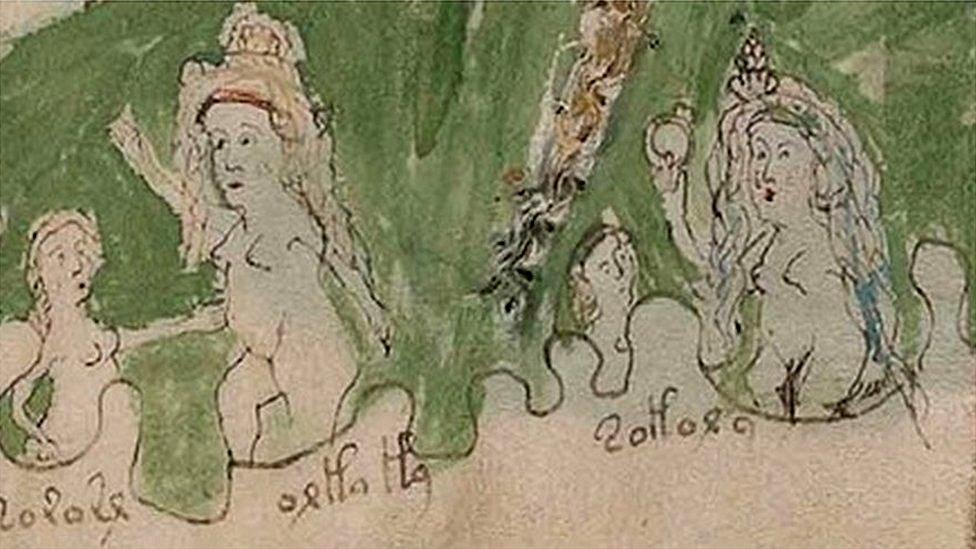Voynich manuscript translation claims raise 'concerns'
- Published

Dr Gerard Cheshire claims the Voynich manuscript is written in the Proto-Romance language
A university has distanced itself from an academic's claim to have deciphered a medieval manuscript after "concerns" over the validity of his research.
Countless scholars including Alan Turing have been unable to decode the Voynich manuscript.
Dr Gerard Cheshire has claimed it is a therapeutic reference book written in a lost language called Proto-Romance.
However, Bristol University said it plans to seek "further validation" after "concerns" from fellow academics.
It said the paper published by Dr Cheshire, a research assistant, "was entirely the author's own work" and is not affiliated with the university, however the story did feature on the university's website.
In a statement, the university said: "Following media coverage, concerns have been raised about the validity of this research from academics in the fields of linguistics and medieval studies.
"We take such concerns very seriously and have therefore removed the story regarding this research from our website to seek further validation and allow further discussions both internally and with the journal concerned."
The manuscript is a handwritten and illustrated text carbon-dated to the mid-15th Century.
It is named after Wilfrid M Voynich, a Polish book dealer and antiquarian who purchased it in 1912.
The document is housed in the Beinecke Library at Yale University in the USA.
The script's codex also baffled the FBI, which studied it during the Cold War apparently thinking it may have been Communist propaganda.

Alan Turing and his colleagues were not able crack the code and nor could the FBI
Dr Cheshire said he believed the manuscript was compiled by Dominican nuns as a source of reference for Maria of Castile, Queen of Aragon, the great-aunt to Catherine of Aragon.
He said the text is written in Proto-Romance, belonging to today's Romance languages including Portuguese, Spanish, French, Italian, Romanian, Catalan and Galician.
The language was commonplace in the Mediterranean during the medieval period, but was not used in written documents as Latin was the language of royalty, church and government.
- Published16 May 2019
